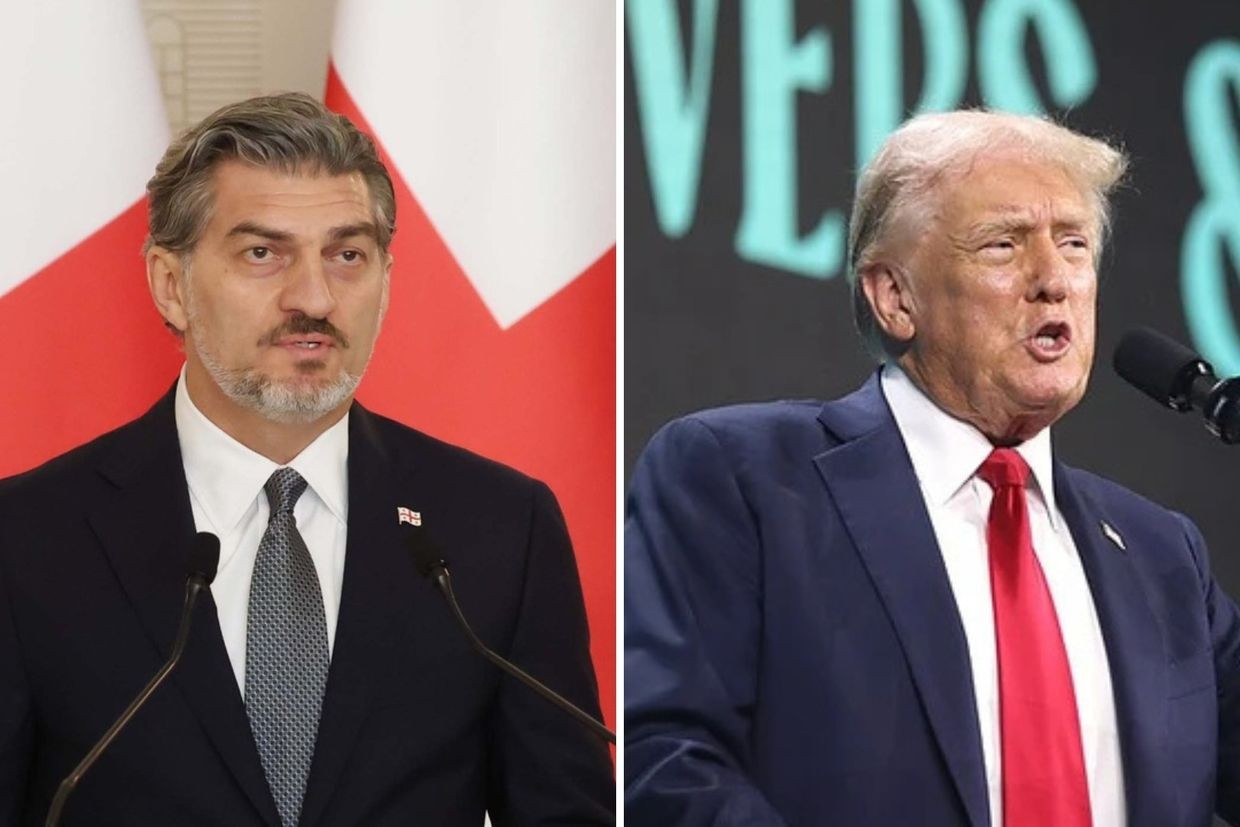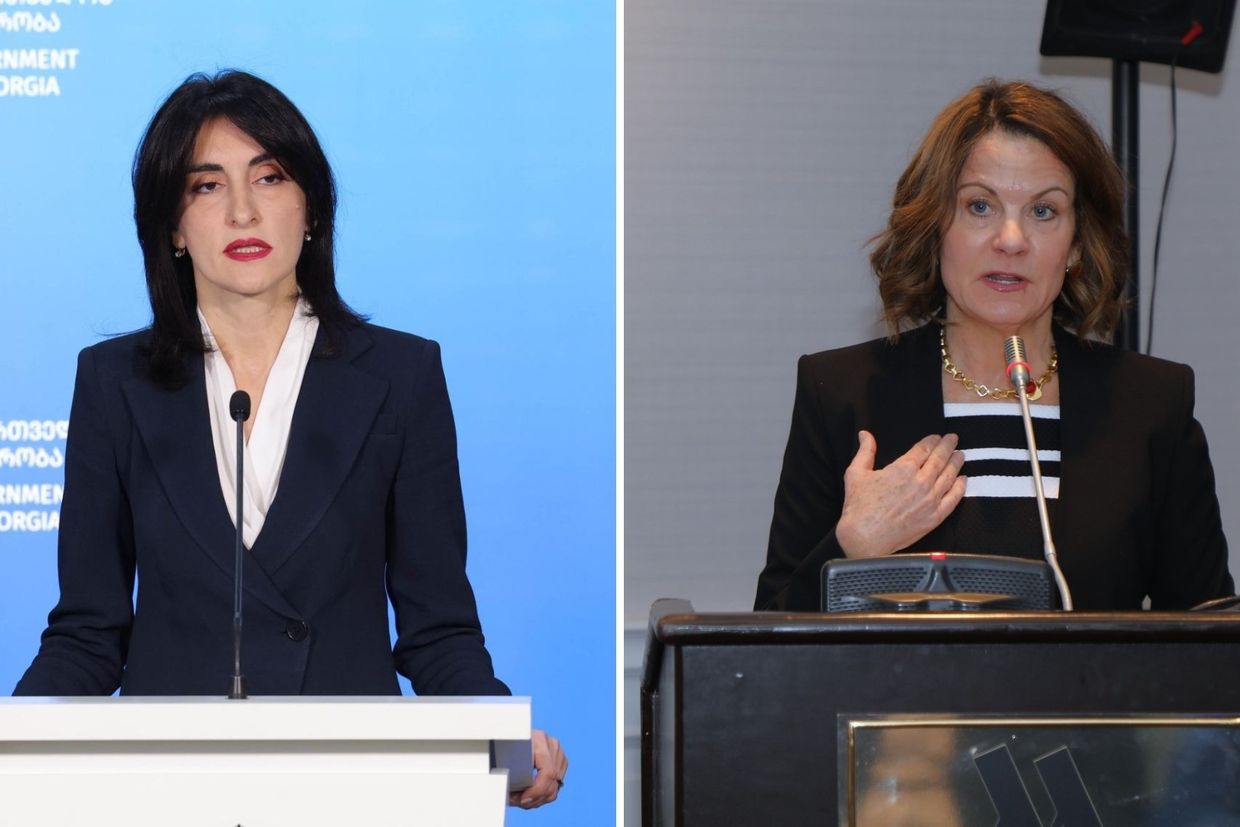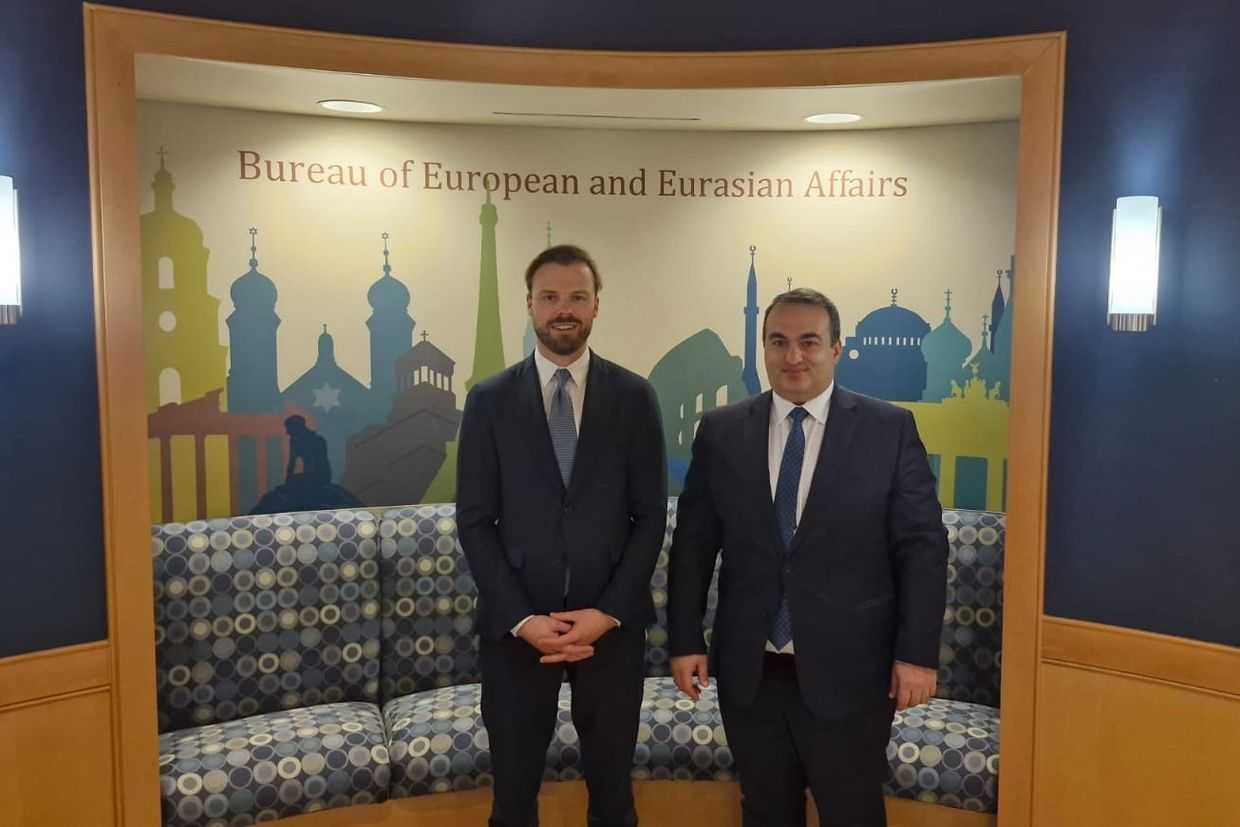President Kavelashvili complains about inattention from Trump, warns ‘deep state’ filling the void

In a letter to US President Donald Trump, Georgia’s President Mikheil Kavelashvili complained that Trump’s administration does not pay enough attention to Georgia. According to Kavelashvili, instead of Washington’s administration, it is the ‘deep state’ that is taking the lead.
The letter, published on Kavelashvili’s official social media on Monday morning, resembled Prime Minister Irakli Kobakhidze’s May letter, in which he complained about the lack of high-level talks or communication between their administration and the Georgian Dream government.
In Kavelashvili’s words, the Georgian authorities have repeatedly expressed a desire to ‘reset’ relations with the United States, including the strategic partnership that the former US President Joe Biden’s administration had frozen as part of its ‘aggressive policy toward sovereign states’.
‘Against this backdrop, it must once again be noted with regret that your administration does not show appropriate attention to Georgia, which, given the full value alignment between our governments, surprises Georgian society’, he added.
Kavelashvili further noted that amid lack of attention from the Trump administration, it is instead the ‘deep state’ that takes the lead, ‘seeking to bring destabilisation and disrupt peace in Georgia through the traditional heavy-handed methods’.
He referred to US organisations, including USAID and the National Endowment for Democracy (NED), as part of the aforementioned ‘deep state’ — a nebulous term for shadowy forces the ruling party claims has been trying to pull Georgia into war and overthrow the government.
Kavelashvili complained that in the first months of his presidency, Trump established relations with ‘virtually all’ of Georgia’s neighbors, including supporting the Armenia–Azerbaijan peace process and ‘even restoring partnership with [Russian President] Vladimir Putin’, yet his administration ‘says nothing about Georgia’.
Questioning Washington’s policy in the Caucasus, Kavelashvili mentioned Trump’s ‘passivity’, which ‘raises doubts and questions among Georgian people regarding how free and sincere your administration’s actions are in terms of strengthening peace in the region’.
At the end of the letter, expressing a readiness to contribute to ‘reset’ relations with Washington, including to the restoration of the strategic partnership through a ‘concrete roadmap’, Kavelashvili expressed hope that the Trump administration’s approach toward Georgia would change.
In his words, it is important that, for Georgians, the US is associated not with the ‘deep state’ and ‘continuous attempts at disrupting peace and destabilisation’, as well as what Kavelashvili called ‘gender and LGBT propaganda’, but with a ‘strong US president’, peace, stability, and ‘respect for traditional values’.
Kavelashvili was elected president by the Georgian Dream parliamentary majority in December 2024, following parliamentary elections marked by major violations. This raised questions about the legitimacy of both the parliament, dominated by Georgian Dream, and Kavelashvili’s election. The opposition boycotted the presidential vote as well as the entire parliamentary process.
Strained relations
Relations between Georgia and the United States deteriorated significantly amid the Georgian Dream government’s adoption of repressive laws, the disputed elections, and police violence against anti-government protesters.
Against this backdrop, the US first suspended its strategic partnership with Georgia in November of last year. It later sanctioned the billionaire founder and honorary chair of Georgian Dream, Bidzina Ivanishvili, for ‘undermining the democratic and Euro-Atlantic future of Georgia for the benefit of the Russian Federation’.
Georgian Dream leaders have repeatedly expressed hopes that Trump’s election as US president would help reset relations between the two countries, making a concerted effort to court his administration while often echoing Trump’s rhetoric when addressing domestic issues.
However, the change in administration did not lead to a radical shift in policy toward Georgia, with the sanctions against Ivanishvili still in place and the bipartisan MEGOBARI Act — introduced during the Biden administration and calling for sanctions against representatives of Georgian Dream — passing the US House of Congress in May, moving the bill one step closer to becoming law.
In mid-May, Kobakhidze also published a lengthy open letter addressed to Trump and Vice President JD Vance, complaining about the lack of high-level communication between two countries. He also complained about the MEGOBARI act and the failure to lift Biden-era sanctions against Georgian Dream officials.
Later, Kobakhidze said that Trump’s administration had not responded to his letter, but added that ‘silence is also a very significant answer for us’. He did not specify how he interpreted Trump’s silence.












